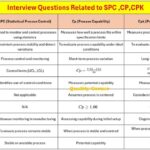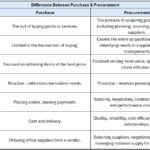Introduction
Congratulations on completing your mechanical engineering degree! Now that you’ve graduated, you’re probably wondering how to land that dream job after mechanical engineering. Well, fear not! We’ve got you covered with ten awesome strategies that will help you stand out from the competition and secure that perfect job position.
1. Polish Your Resume and Cover Letter
Your resume and cover letter are your golden tickets to getting noticed by potential employers. Take the time to craft them meticulously, highlighting your education, relevant experiences, and accomplishments. Tailor your resume to the job you’re applying for, showcasing how your skills align with the employer’s requirements.
A well-crafted cover letter should tell your story, conveying your passion for mechanical engineering and your genuine interest in the position you’re seeking. Be clear, concise, and let your personality shine through.
2. Leverage Internships and Co-op Programs
Practical experience is a game-changer in the job market. Internships and cooperative education programs provide you with real-world exposure and an opportunity to network within the industry. They may even lead to job offers upon graduation, so make the most of these invaluable experiences.
3. Build a Strong Online Presence
In today’s digital age, having a robust online presence is crucial. Optimize your LinkedIn profile, showcasing your achievements and aspirations in the field of mechanical engineering. Engage with industry professionals and join relevant groups to stay updated with the latest trends and advancements.
Creating a personal blog or website is another great way to showcase your engineering projects and research. This platform acts as your online portfolio, allowing potential employers to see your expertise and passion for the field.
4. Showcase Your Projects and Portfolio
Your projects speak volumes about your skills and creativity. Curate a portfolio that showcases your best work, emphasizing the challenges you’ve overcome and the impact of your contributions. Visual elements, such as images and videos, can make your portfolio more engaging and memorable.
Highlighting your hands-on experience and problem-solving abilities will undoubtedly set you apart from other candidates. Let your work do the talking and demonstrate your value to prospective employers.
5. Network, Network, Network!
Networking is a powerful tool in unlocking job opportunities. Attend industry events, job fairs, and conferences to connect with professionals and recruiters. Engage in meaningful conversations and don’t hesitate to seek advice or referrals.
Additionally, explore virtual networking opportunities through online forums and social media platforms. Active participation in discussions and sharing valuable insights can establish you as a knowledgeable and approachable mechanical engineer.
6. Enhance Your Soft Skills
While technical skills are essential, soft skills play a vital role in your success as an engineer. Communication, teamwork, problem-solving, and adaptability are highly valued by employers. Develop and showcase these skills during interviews and networking events.
Articulate your ideas clearly and actively listen to others. Emphasize your ability to collaborate effectively and demonstrate a positive attitude when facing challenges.
7. Stay Informed About Industry Trends
Mechanical engineering is a dynamic field, constantly evolving with new technologies and trends. Stay updated with the latest advancements and emerging technologies. Employers appreciate candidates who demonstrate a genuine interest in the field and a willingness to learn and grow.
Subscribe to industry newsletters, follow reputable engineering blogs, and read publications from professional organizations. Show that you’re enthusiastic about staying ahead of the curve.
8. Prepare for Interviews Thoroughly
Nailing the interview is critical in securing your dream job. Research the company thoroughly, understand their values and projects, and prepare answers to common interview questions. Practice with a friend or mentor to build your confidence.
Beyond technical questions, be ready to discuss your problem-solving approach, leadership style, and examples of successful teamwork. Convey your passion for engineering and your genuine interest in contributing to the company’s success.
9. Seek Mentorship and Guidance
Mentorship can be a valuable asset in your career journey. Seek guidance from experienced professionals who can offer advice, share their experiences, and help you navigate the challenges of job hunting and professional development.
Look for mentorship opportunities within your academic institution, professional networks, or engineering societies. Having a mentor who understands your aspirations can provide you with invaluable insights and support.
10. Be Persistent and Patient
Finding your dream job may not happen overnight, but persistence pays off. Stay positive in your job search efforts and be patient. Rejections are part of the process, but they can lead you to better opportunities.
Every experience is an opportunity to learn and grow. Stay open to feedback, refine your job search strategy, and trust that your dedication will eventually pay off.
Conclusion
Congratulations! You now have a comprehensive guide to unlocking your dream job after mechanical engineering. By polishing your resume, leveraging internships, building a strong online presence, showcasing your projects, networking, enhancing soft skills, staying informed, preparing for interviews, seeking mentorship, and being persistent, you’ll be well on your way to success.
Remember, landing your dream job is a journey of continuous learning and self-improvement. Keep your passion for mechanical engineering alive, and success will be within your reach.
- Top 15 MNCs Every Mechanical Engineer Dreams of Joining in 2025

- How to Digitize and Automate the CAPA Process

- Top 10 Essential Tools Every Mechanical Engineer Should Know

- What is GD&T (Geometric Dimensioning & Tolerancing) ?

- Principles of IATF 16949: A Guide to Quality Management

- The Evolution of IATF 16949: The Automotive Quality Standard

- Top Interview Questions Related to SPC ,Cp and Cpk

- Difference Between Purchase and Procurement


